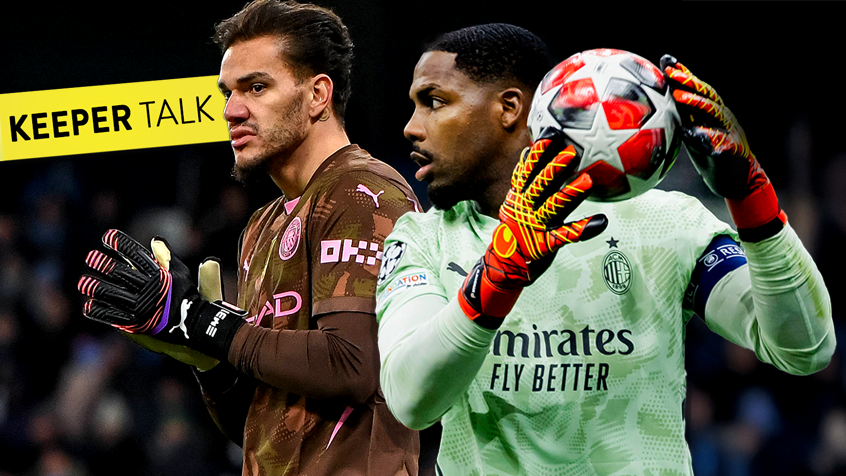Goalkeeper Analysis - With these characteristics you will become a professional goalkeeper
Mental Strength in Goalkeeping: Why Adaptability Is the Key to Success
In modern football, goalkeeping is more than just preventing goals. It demands not only technical skills and peak athleticism but also immense mental resilience. A goalkeeper must never give up and must defend their goal until the final whistle. But what does resilience in goalkeeping truly mean? And how can a keeper specifically train their mental strength?
Why Mental Strength Is Crucial for Goalkeepers
✔️ Handling Pressure:
Goalkeepers face intense pressure—one mistake can be game-changing. Mental strength helps manage this pressure and maintain focus on the next action.
✔️ Overcoming Setbacks:
Every keeper makes mistakes. Top goalkeepers are distinguished by their ability to quickly move past setbacks and refocus.
✔️ Deciding Matches:
A mentally strong goalkeeper can excel in critical moments, whether saving a penalty or making a spectacular last-minute save.
✔️ Exhibiting Leadership:
A keeper is the voice of the defense. They must direct their backline and motivate the team, even after conceding a goal.
Techniques to Enhance Mental Resilience
Some of the world's best goalkeepers use psychological methods to boost concentration and resilience. Here are some proven techniques:
- 1. Visualization – Rehearse the Game Mentally
Many keepers visualize their saves before the match. This mental training fosters confidence and preparedness. For instance, during a penalty, a goalkeeper might visualize correctly anticipating the direction and making the save. - 2. Focused Breathing – Maintain Calm in Chaotic Moments
After conceding a goal, controlled breathing helps quickly regain concentration. Deep breathing techniques lower heart rate and promote calmness, especially in critical game situations. - 3. Positive Self-Talk – Cultivate the Right Mindset
Phrases like "I'm ready," "I can save this shot," or "I won't be rattled" foster a positive self-image. Mentally replaying training successes boosts confidence during matches. - 4. Develop Routines – Gain Control Through Habits
Many professional keepers have set routines that provide security, whether it's a specific warm-up sequence or a pre-kickoff ritual. Routines help reduce nervousness and maintain focus.
Examples from Professional Football
Many of the world's top goalkeepers are renowned for their mental strength.
✔️ Manuel Neuer:
After severe injuries, the Bayern keeper repeatedly fought back and delivered world-class performances in crucial moments.
✔️ Iker Casillas:
As captain of Spain and Real Madrid, he remained composed during critical phases of his career and consistently performed.
✔️ Gianluigi Buffon:
One of the mentally strongest keepers of all time—played at the highest level for over two decades.
Conclusion: Resilience as the Key to Success
Goalkeeping demands much more than physical abilities. Mental strength is the decisive factor that distinguishes a good keeper from an outstanding one. The ability to stay calm after mistakes, perform under pressure, and lead the team after setbacks defines a true professional.
No matter your level of play—with the right mental techniques, visualization, and focus, you can elevate your goalkeeping to the next level.
